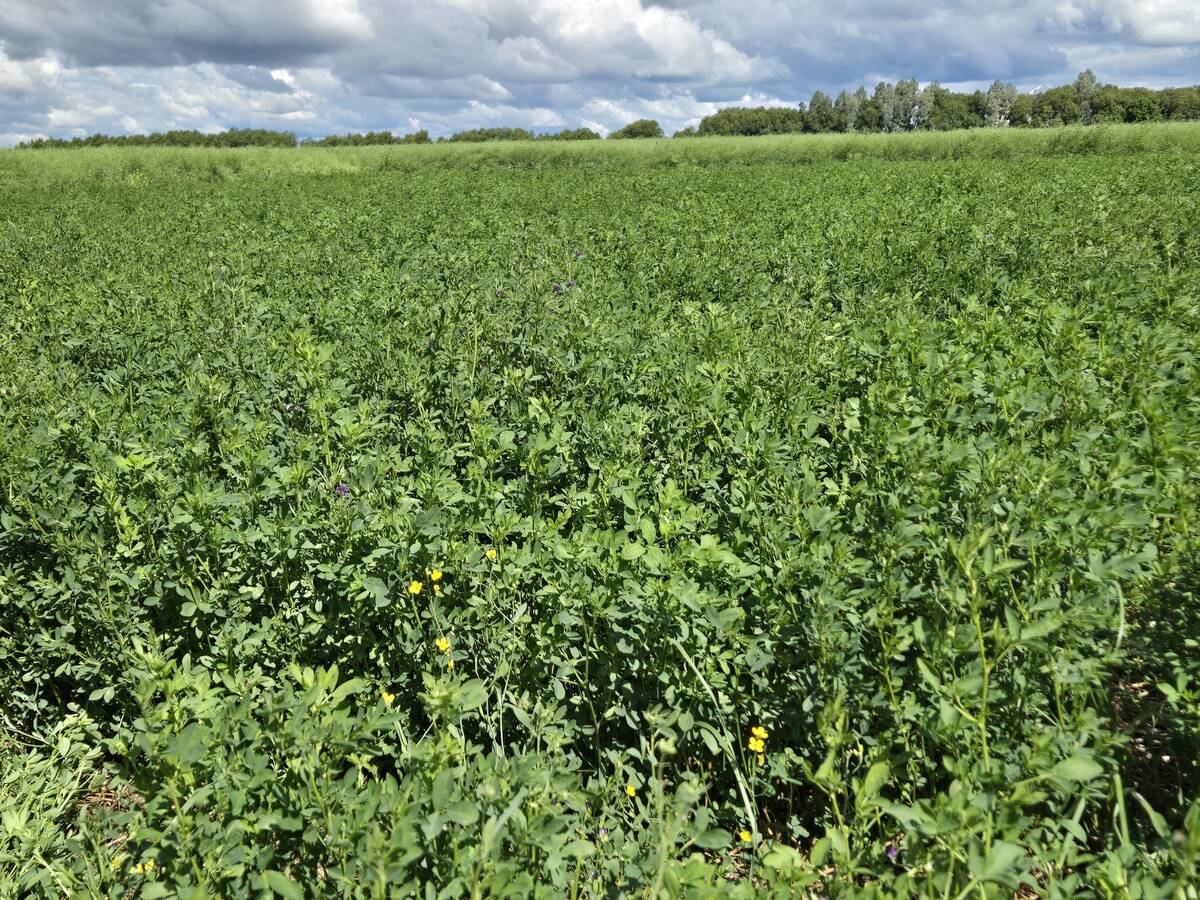Slaughter and processing | Industry officials concerned about potential layoffs of American meat inspectors
CHICAGO, Ill. (Reuters) — U.S. farmers and agribusiness companies are worried that federal budget cuts will snarl the supply channels for everything from milk and broiler chickens to grain shipments.
However, many hope that the Barack Obama administration and Republican party opponents will find a compromise before major disruptions hit the food system.
Most immediate concerns centre on federal meat inspectors at U.S. meat plants, who must be present by law for animal slaughter and meat processing to take place. U.S. agriculture secretary Tom Vilsack said the U.S. Department of Agriculture’s meat safety agency would have to lay off its 8,400 inspectors for 11 to 12 days to compile the savings required under the so-called sequestration or automatic federal budget cuts.
Read Also

Manitoba Parkland research station grapples with dry year
Drought conditions in northwestern Manitoba have forced researchers at the Parkland Crop Diversification Foundation to terminate some projects and reseed others.
There are also concerns about grain inspection at ports and key jobs in transportation, such as the Army Corps of Engineers, which operates hundreds of river locks and dams for grain barge traffic.
Given the importance of the U.S. food system, food exports regularly post a huge trade surplus and food inflation is a key bellwether for government policymakers. Agribusiness executives and officials said they expected the government to think carefully to minimize disruptions to food supplies.
“Even in the scenarios being discussed in the press, inspector services would not be affected for a few months,” said Thomas Super, vice-president of communications at the National Chicken Council, referring to USDA meat inspectors at broiler packing plants.
“Because sequestration cuts must be spread over the next seven months, opportunity remains to resolve the budget crisis before inspectors are furloughed,” he said.
Super said NCC and about 40 other meat, poultry, food and grocery manufacturing and restaurant associations sent a letter to Vilsack underscoring their concerns about furloughing of USDA food safety inspectors due to the sequester cuts that went into process March 1.
USDA says no furlough notices have been issued to meat inspectors or any USDA department, but Vilsack told the U.S. House agriculture committee March 5 that the agency will send furlough notices to meat inspectors soon, although it will be “several months” before they occur.
Dave Warner, a spokesperson for the National Pork Producers Association, said: “Meat inspection should be maintained to protect the public health by ensuring the safety of the U.S. meat supply. Should inspectors be furloughed, that action would have a huge negative impact on hog farmers, meat packers and processors, food retailers and restaurants and consumers.”
By law, slaughterhouse activities cannot proceed without USDA-employed inspectors on hand. A mass layoff of inspectors would shut down nearly 6,300 meat packing and processing facilities because companies cannot ship meat that lacks the USDA inspection seal.
The White House estimates the industry would lose $10 billion US in production with just a two-week shutdown. Retail and wholesale meat prices would be expected to rise.
“Because meat inspection has historically been considered essential by the federal government, we’re optimistic there will be no interruption in this public health and safety function. We do not expect any immediate impact on our business,” said spokesperson Gary Mickelson of Tyson Foods, the largest U.S. meatpacker.
USDA’s Agricultural Marketing Service, which generates prices used as benchmarks for livestock futures at the CME Group Inc., and essential agribusiness needs like the federal grain inspection service are also at risk of slowdowns or shutdowns.
“I don’t believe it’s going to be an issue because there are a lot of ways within USDA to cut the budget without having to furlough meat inspectors,” said Dan Norcini, a livestock futures trader at CME. “All of these fears are overblown and quite frankly I don’t put any stock in any of that talk.”
U.S. grain export associations, details on government’s furlough plans, have been mostly silent so far on how grain inspections and export trade would be affected.
But federal government workers are everywhere in the food chain, from operations of locks and dams on U.S. rivers to oversight of rail shipments to quality control of food imports for contamination from pesticides and other chemicals.
Randy Gordon, president of the National Grain and Feed Association, said his group, which includes hundreds of grain handlers, was confident that grain inspections at U.S. gateway ports including New Orleans or Portland, Oregon, would have business as usual.
“Our understanding is that sequestration’s impact on daily official grain inspection and weighing services performed by USDA’s Grain Inspection, Packers and Stockyards Administration will be minimal, as these services are financed almost exclusively through industry-paid user fees,” Gordon said.
















